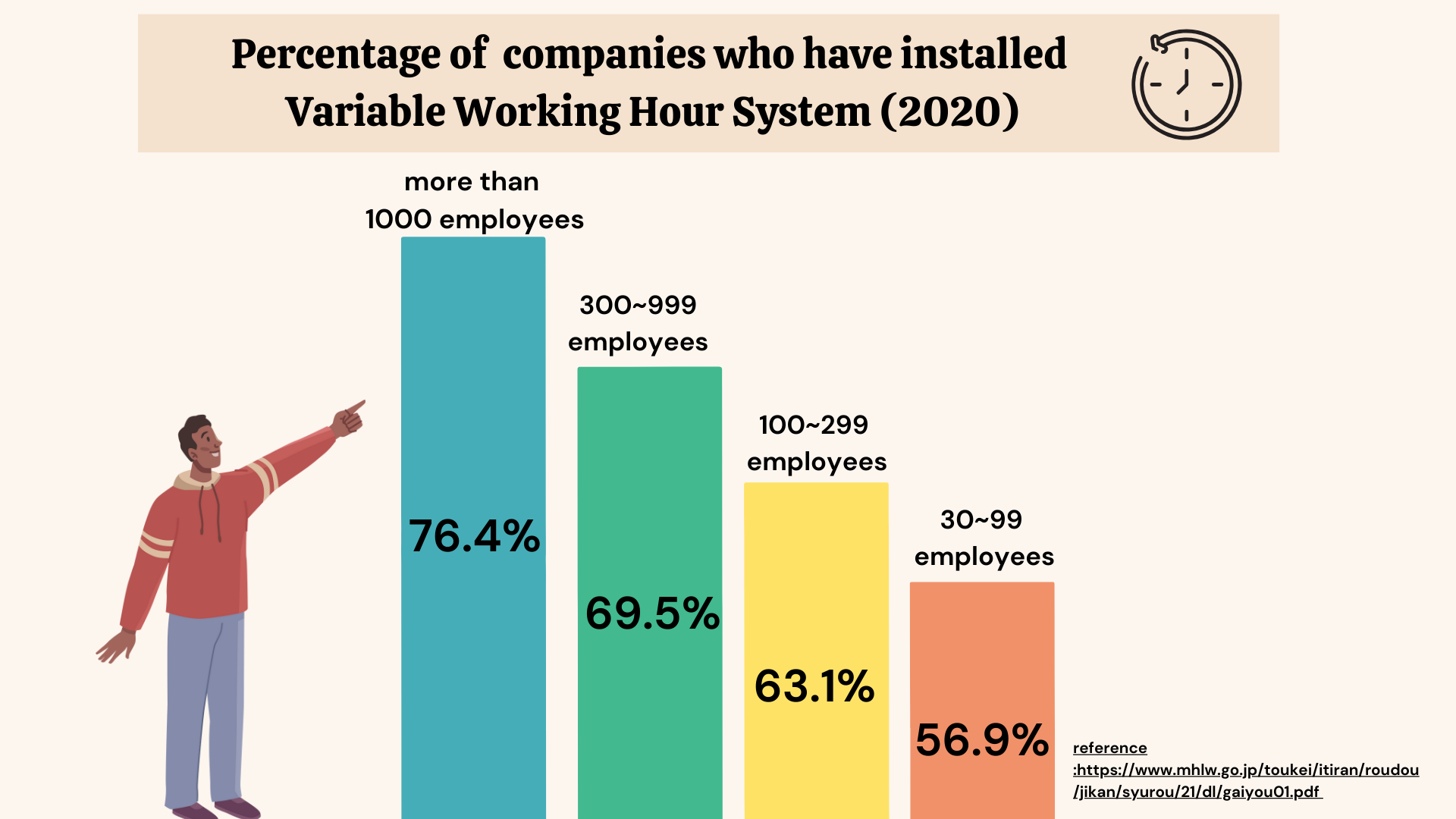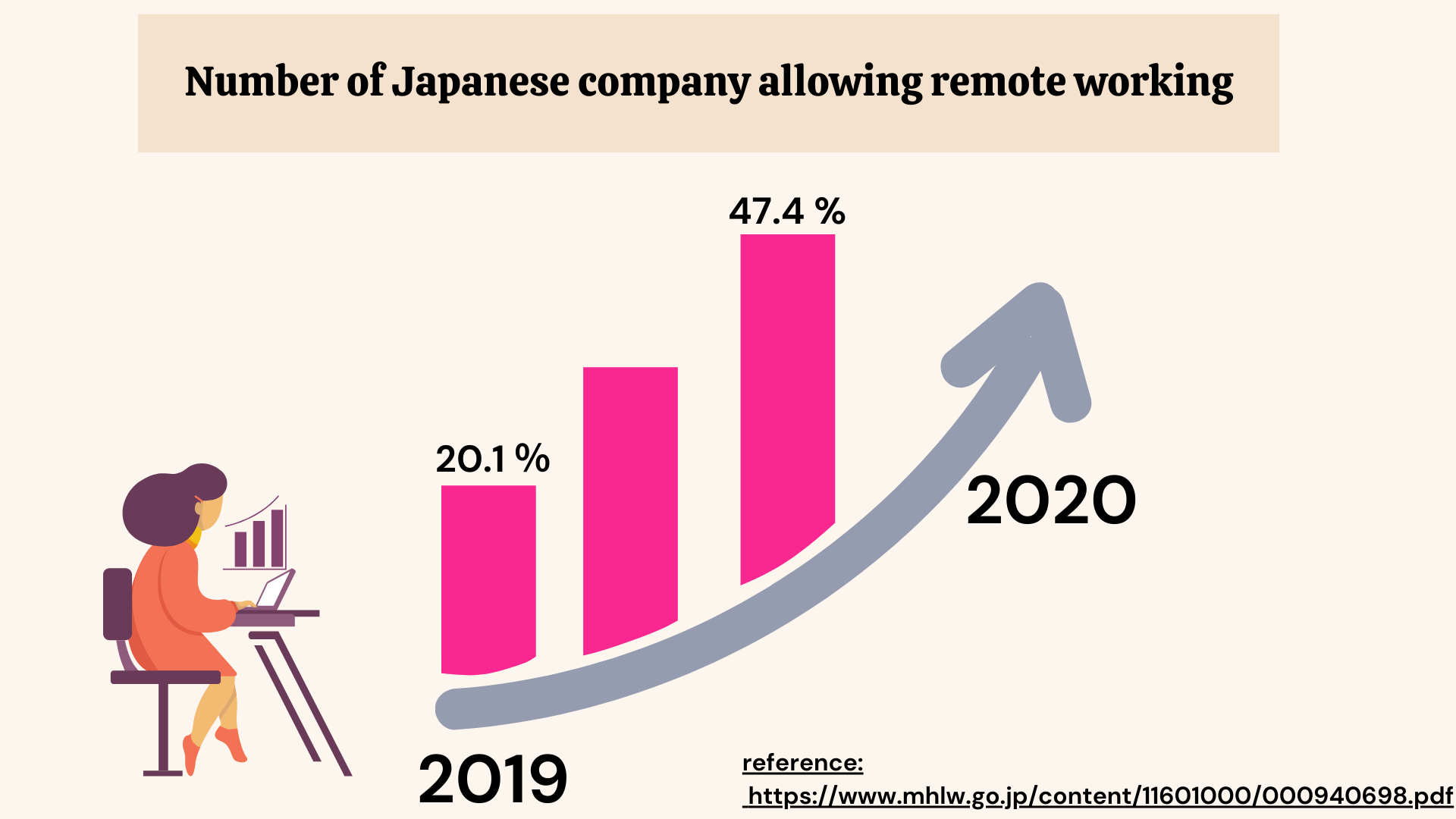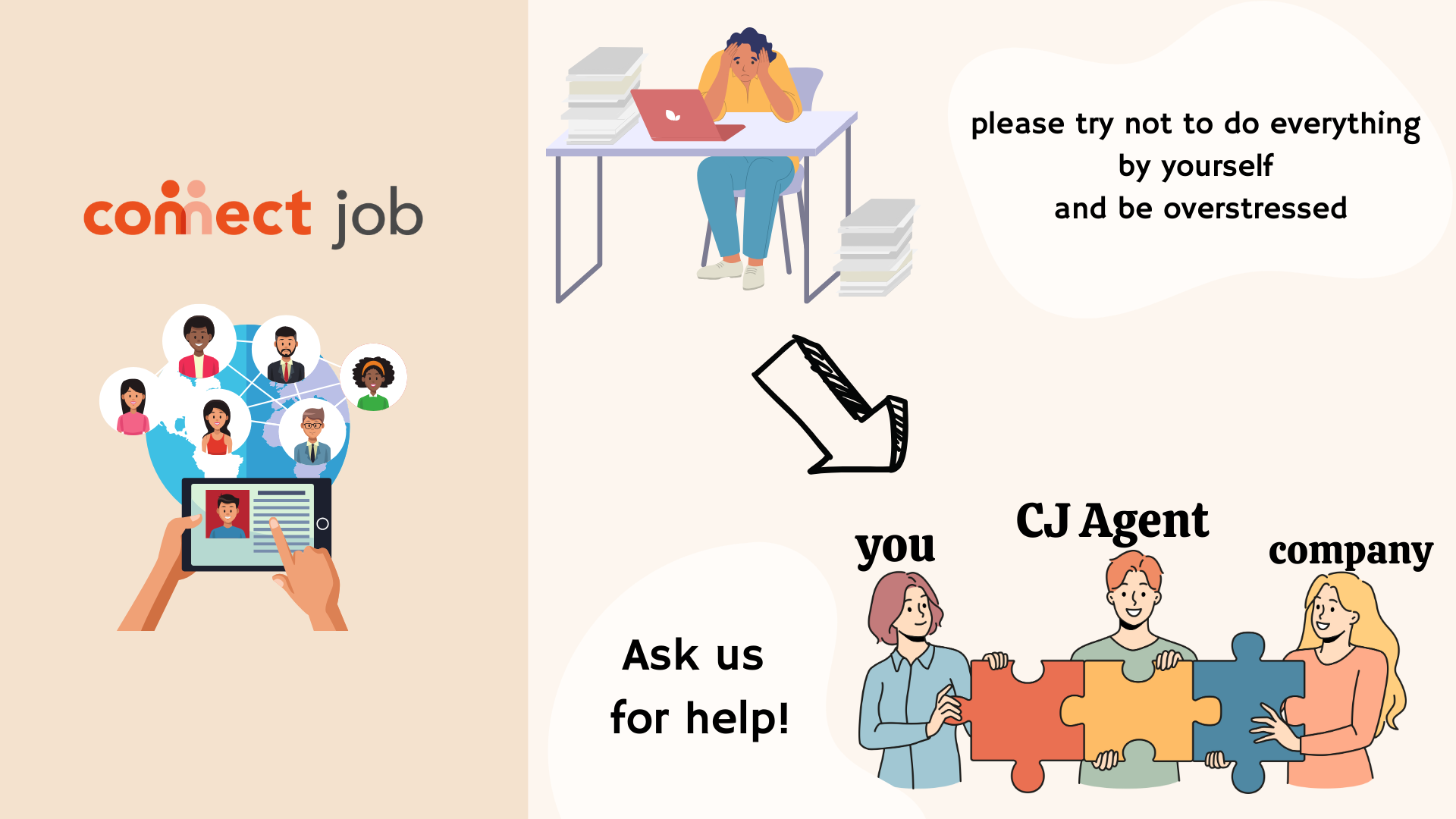What kind of image would you get if you heard that your friend decided to work in Japan in a Japanese company? Would you have a positive image and send your friend out with a big smile or be worried that your friend might not be able to enjoy life to the fullest due to the image of “black companies”? Well, Japan’s working culture has been drastically changing over the past few years in a positive light, and some of the dark images of working in Japan are and should be changing. Through this blog post, we would like for you to renew your image of working in a Japanese company and be excited for your new adventure in Japan!
1.Is Japan still working too long?
Let us first introduce the working hours in a typical Japanese company since one may have the image of black companies where they make their workers work from morning to night. The average working time is from 9 AM to 6PM with a lunch break in between for an hour. Although it was normal for everyone to go and work in the office for the whole day, due to the outbreak of the coronavirus, more companies are installing flextime or core time system where the employees can effectively use their time based on their daily schedule or family situations. According to Japan's Ministry of Health, Labour and Welfare, 59.6 % of Japanese companies have introduced variable working hour system with the larger companies which carry more than 1000 employees having higher percentages of installment of the various working hours system. (reference: https://www.mhlw.go.jp/toukei/itiran/roudou/jikan/syurou/21/dl/gaiyou01.pdf)

2.What about the stressful overpacked trains to go to work?
It would not be surprising if one has a negative image of Japanese salary men being squished into the train, looking stressed to go to work. Although there is the disappointing side of the story where this crowded train situation has not changed much, there is also a positive side to the story where many companies are allowing workers to work remotely. For example, the Ministry of Internal Affairs and Communications has made it clear that the number of companies which have allowed remote working has risen significantly from 20.1 percent to 47.4 percent.( reference: https://www.mhlw.go.jp/content/11601000/000940698.pdf) If the company which you might work for in Japan does allow either flexible working hours or remote working, then your stress of needing to ride on crowded trains everyday will vanish. However, in terms of both remote working and flexible hours, there is a need to closely look at the company’s employee’s management style since the company might call for you to come to office on regular hours in the first few months of employment.

3.Closer look into the social aspects such as Nomikai
Japan might also be famous for the distinctive business manners which only exist in Japan such as the bowing culture and the use of keigo. These specific manners are crucial to understand and to follow since these actions still hold great importance when becoming an employee in the company. However, one of the notorious Japanese business cultures, Nomikai, which is drinking after work with colleagues and superiors, has been changing its forms. The spread of the pandemic has had a positive impact on this drinking culture since all of these Nomikais were suspended during the quarantine and the trend of going straight home after work has been continuing. While the drinking culture depends heavily on the color of the company and size such as whether the company is a traditional big company or a start-up company, in the post-pandemic society, it has become easier for people to respond negatively to these offers and go straight home to rest or eat dinner with their family members.

4.Salary and unique benefits from working in a typical Japanes company
One crucial aspect that everyone will put emphasis on when deciding where to work is the amount of salary one gains throughout the year. While some may have fallen into a little disappointment when it comes to the average salary in Japan, we advise you to also take a sneak peek into the unique benefits that these Japanese companies offer to their employees. Some of these benefits include free lunch meals, use of gym facilities within the company, housing allowance, and even congratulatory allowance for marriage and childbirth. While one may have the image of these benefits existing only in large enterprises, small venture companies also install their own unique benefits such as having a siesta system where the employees can get 30 minutes in any time of their working hours to sleep and refresh. Therefore, when choosing which company you want to work for, we highly recommend for you to not only look at the salary, but also the various benefits the company offers to their employees.

5.How to find a job in Japan
While even finding a job itself is difficult, the complexity gets higher when trying to find a job in a different country, especially in a country like Japan where companies only have little information given in English. Moreover, while Japan is heading towards inclusion of foreign workers, many employment agencies in Japan put up recruitment information which targets only Japanese citizens. This may lead you to think that there are not many jobs in Japan which seek foreign talents. However, that is not true. If you are stressed out on finding a job in Japan, please use the platform Connect Job and Connect Job Workers where we provide information on recruitments of various companies from IT to financial services in English. Moreover, if you are ever lost in trying to find which company may suit you, the Connect Job agents will assist you in making a match for the company which seeks talents like you who have global backgrounds.

▶Find a job in Japan with Connect Job
We have 2 types of services based on Visa. If you are interested in working in Japan, don’t hesitate to get our support. All the support is free of charge.
Connect Job is a job-hunting support service dedicated to international students. Career consultants who are specialized in supporting international students will not only give information about job positions but fully support your job hunting from preparation to getting a job offer.
Working visa type : EHI (技術・人文知識・国際業務)
Connect Job WORKERS is an app that helps foreigners to find jobs with SSW (Tokutei Ginou) visa in Japan with support. You can choose various jobs in different industries such as restaurants, hotels, nursing care, construction, etc. across Japan based on your backgrounds.
Working visa type : SSW (特定技能/とくていぎのう)



